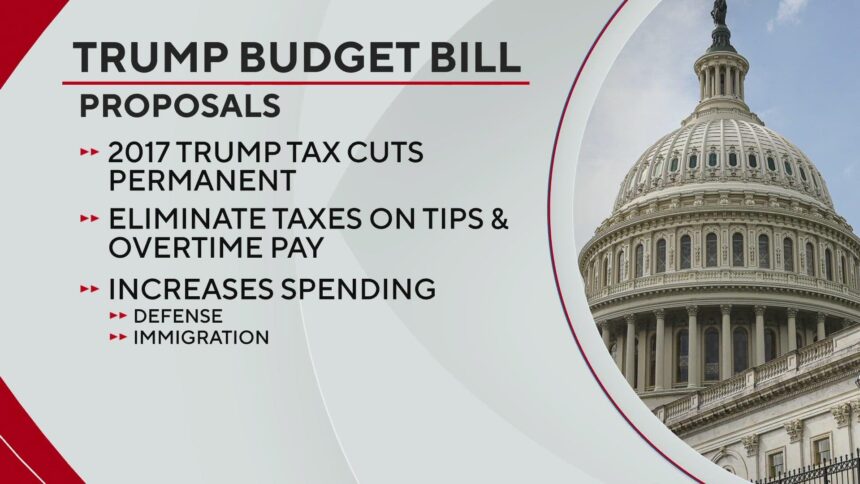Community Concerns Surround Federal Budget Reductions
Local leaders and community advocates express strong resistance to the proposed federal budget cuts,cautioning that reducing funds for essential neighborhood programs could jeopardize services that many residents depend on daily. The proposed cuts target after-school programs, mental health support, and affordable housing initiatives—efforts widely recognized for fostering community cohesion and improving public safety. Local officials argue these reductions disproportionately impact vulnerable groups, warning that immediate budget savings may result in significant long-term social and economic repercussions.
This conflict highlights a widening rift between federal policymakers and regional representatives regarding spending priorities. While national legislators emphasize fiscal responsibility, local officials stress the necessity of maintaining support systems that address urgent community challenges. This debate has prompted calls for more balanced budget proposals, with some lawmakers advocating for sustained or increased funding in critical sectors. Below is an overview of the affected programs and their current versus proposed funding:
| Programme | Current Allocation | Proposed Reduction | Community Impact |
|---|---|---|---|
| After-School Programs | $12 million | 30% | Decreased youth participation |
| Mental Health Services | $8 million | 25% | Restricted access to care |
| Affordable Housing Support | $15 million | 20% | Rising housing instability |
Escalating National Discussion on Budget Allocations and Fiscal Discipline
The proposed budget plan backed by former President Donald Trump has ignited intense debates between local officials and federal lawmakers over spending priorities and fiscal management. Local representatives contend that the bill’s funding cuts threaten essential services in education, healthcare, and infrastructure, advocating for a more equitable distribution of resources. In contrast, national policymakers stress the importance of reducing the federal deficit through stringent budget controls, arguing that fiscal prudence is vital for long-term economic health.
Major points of disagreement include:
- Education funding: Local leaders call for increased investment to address learning losses caused by the COVID-19 pandemic.
- Healthcare budgets: Federal officials propose trimming entitlement programs while encouraging private sector involvement.
- Infrastructure spending: Both camps warn that the opposing approach could delay necessary repairs and modernization projects.
| Category | Trump Budget Proposal | Local Officials’ Request |
|---|---|---|
| Education | -$10 billion | + $5 billion |
| Healthcare | -$15 billion | + $4 billion |
| Infrastructure | -$8 billion | + $7 billion |
Economic Impact of Budget Changes on Local and State Services
The budget proposal introduces significant shifts in federal funding that could have far-reaching economic effects on state and municipal services. The suggested reductions in federal aid threaten to curtail vital community programs, including public health initiatives and infrastructure projects. Local governments warn that these funding gaps may compel them to increase local taxes or cut back on services, potentially deepening disparities in underserved communities.
Highlighted economic consequences include:
- Decreased grant availability: States may face stricter limits on funding for education and emergency response programs.
- Higher local tax pressures: Municipalities might need to raise property or sales taxes to compensate for federal shortfalls.
- Job reductions: Cuts could lead to layoffs in public sector roles essential to community well-being.
| Service Sector | Federal Funding Change | Anticipated Local Effect |
|---|---|---|
| Public Health | -15% | Clinic shutdowns, fewer preventive services |
| Education | -12% | Staff cuts, reduced extracurricular activities |
| Infrastructure | -20% | Postponed maintenance, higher repair expenses |
Bridging the Gap Through Collaborative Policy-Making
The persistent discord surrounding the Trump budget bill underscores the necessity for improved collaboration between federal and local lawmakers. Experts in public policy emphasize that unilateral decisions exacerbate divisions and delay funding crucial to community projects. Encouraging open interaction and cooperative problem-solving can help reconcile differing priorities and develop more comprehensive fiscal strategies that benefit all stakeholders.
Proposed measures to enhance cooperation include:
- Regular bipartisan forums to address contentious budget topics.
- Creation of joint committees comprising representatives from both federal and local governments.
- Transparent sharing of data and impact assessments to guide funding decisions.
| Collaboration Approach | Anticipated Benefit |
|---|---|
| Bipartisan Forums | Minimize misunderstandings and build consensus |
| Joint Committees | Improve coordinated policy-making |
| Shared Data Platforms | Enhance transparency and informed debate |
Conclusion: Finding Common Ground in Budget Negotiations
The ongoing debate over the Trump budget proposal reveals the intricate challenge of balancing fiscal responsibility with the diverse needs of communities nationwide. As discussions progress, stakeholders remain cautiously optimistic that a middle ground can be achieved—one that respects both local priorities and national economic goals. The upcoming weeks will be pivotal in shaping a final budget that supports lasting growth and equitable service delivery across the country.
